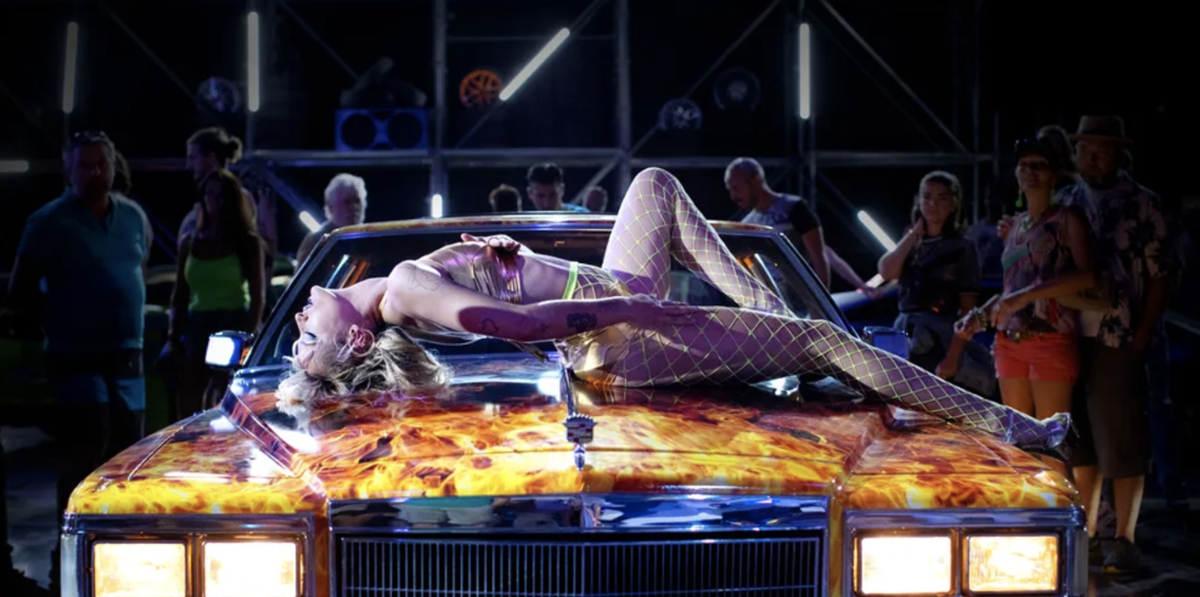Rumors of Gaspar Noe’s death are greatly exaggerated. Yes, the director reportedly narrowly escaped after suffering a cerebral hemorrhage. The brutal meeting with the abyss left such a strong mark on the artist that he not only quit steroids, but also made a film about two old men who have terminal problems. As everyone has already written, “Vortex” invites you to compare it to Haneke’s “Love.” I join the chorus of clarity and affirm: in both films, the living legends of cinema recreate the subtle drama of departure. However, the rumor that Noe is no longer Noe, as the Grim Reaper cast his brilliance (or resentment), misses the core of the movie experience, which is “Vortex.” Yes, this experience is definitely “quieter” and more reflective than before. But still 100% noe.
Interestingly, “Vortex” comes after the funniest film in the director’s career. After all, ‘Climax’ (2018) was almost a cinematic genre: part dance movie, and bit of a horror movie. Above all, it was a “Gaspar Noe” type cinema. Finally the author covered himself with a descriptive company quote, and served him a mix of his own tics for change — simply — to get the party started. Perhaps in the “Vortex” the pendulum of the keys is reversed – instead of a party, we have preparations for the funeral – but the tics remain. Flashing out, Noe was apparently blown into an epileptic orgy for the short “Lux Æterna” (2019), but “Vortex” can still be called “irreversible”, “entering the void” or “love”. Related topics and the same arsenal: there’s the official flaunting of the floating camera and the “flashing” montage, there’s quotes from film masters, and there’s bold red. There is even a director “Deep Red” (1975).
Argento casting is another type of noe. For Haneke, the selection of Trintignant and Riva was not a meta-commentation, but one at best. It bore a reflection that, well, no one is immortal. The presence of Françoise Lebrun – and especially – Daria Argento in “Vortex” is at the same time an open debate with the history of cinema. Although Noé depicts the daily lives of his unsung heroes (father and mother) with a realistic intensity of detail and length of time, the entire task is a game between texts. The topic of progressive dementia for women sparks a debate about remembering and forgetting—even movie myths. What’s more, Argento—the cult director, as an actor, as the man who writes a book about cinema and dreams—spends his screen time philosophizing about the tenth muse and watching classics like “The Vampire” (1932) by Dreyer. Then the loops of meanings turn into the spirals of the old custom of Noé, who always filled the frame with posters, VHS tapes, and quotes from the masters. As Father struggles to breathe, weaving the apartment full of red light, we feel the quotes have quotes here, and Argento and Noe multiply.
You can read the full review of Jakub Popielecki over here.
“Titan” – the second story of Julia Ducornu, author of “Dead” and the best French “radical” in the history of this trend – begins with a contemplative picture of the bodywork. Meditate, read: Eroticism as the camera glides over metal surfaces, wandering among wet pipes and peers into the depths of hissing valves. After a while, the action moves to the interior of the car, where young Alexia pretends to be a racing car and, imitating engine sounds, tries to drown out the rumbling radio. Boiling, the father loses control of the wheel, and the girl ends up on the operating table with a titanium plate in her head. Before you leave the hospital and, like the Crash Part II heroine of Cronenberg, hugging the ordeal with mysterious tenderness (i.e. the Beige sedan, not her father), you’ll hear from the doctor: Watch out for neurological symptoms. oops.
After a lightning-quick jump, Alexia (Agathe Rousselle) is a symptom of nervous walking. At night, a dancer works at Mad Max’s and Christine’s favorite club, sheering Cadillac masks to delight sweaty men with studded skin. During the day, he wanders around the sterile interiors of his family home like a zombie, scraping the painful bruises that exude a black sticky and continuing a silent, eternal feud with his father. On the other hand, he has sex with cars, kills psychic lovers and generally searches for his place in an inhospitable world.
You can read the full commentary by Michał Walkiewicz over here.

“Amateur social media maven. Pop cultureaholic. Troublemaker. Internet evangelist. Typical bacon ninja. Communicator. Zombie aficionado.”










